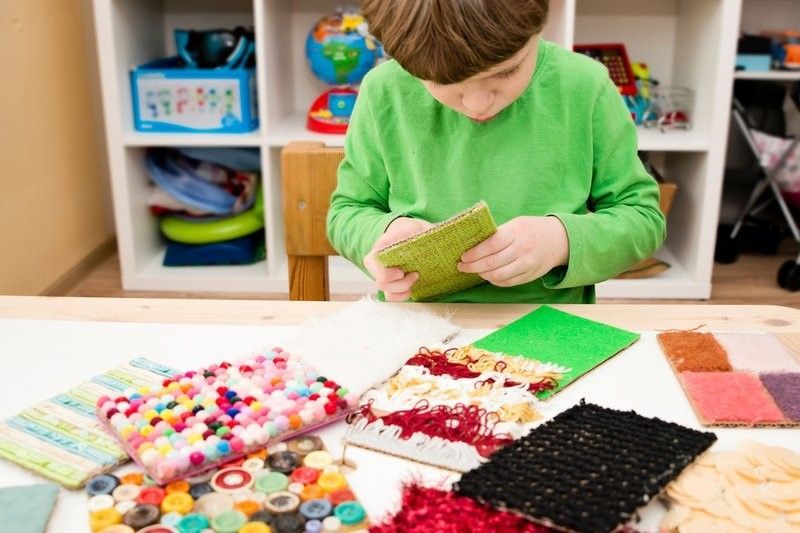The Benefits of Pediatric Occupational Therapy: Encouraging Child Independence from the Start
Supporting Developmental Milestones Through Pediatric Occupational Therapy
Childhood is full of major physical and cognitive milestones: learning to grasp objects, hold a spoon, tie shoes, or climb stairs. Pediatric occupational therapy guides children through these stages by using engaging, play-based strategies that strengthen core abilities. Therapists work with children on hand-eye coordination, muscle strength, balance, and sensory processing—all of which play a role in how kids interact with the world around them.

A key focus of pediatric occupational therapy is enabling participation in age-appropriate daily routines. Whether it’s using buttons, zippers, or writing with a pencil, these seemingly small tasks are essential for independence. When children face challenges in these areas, they may also experience frustration or social difficulties. Occupational therapy gives them the tools and confidence to overcome these barriers.
How Pediatric OT Builds Motor Skills and Self-Care Abilities
Motor skills are central to childhood development, and occupational therapy breaks them down into manageable steps. Fine motor skills, such as grasping a crayon or picking up small objects, are developed alongside gross motor skills like running, jumping, and climbing. Pediatric occupational therapy introduces creative, functional exercises to improve strength, coordination, and body awareness.
Self-care is another vital focus. Learning to dress, brush teeth, wash hands, and eat independently are crucial for building confidence and reducing reliance on others. These skills foster a sense of accomplishment that encourages children to take initiative in other areas of life, such as school participation and peer interaction.
Starting Early: Laying the Groundwork for Future Confidence
The earlier a child begins pediatric occupational therapy, the better the outcomes. Early intervention is proven to accelerate developmental progress and improve long-term independence. Children are naturally curious and adaptable, which makes the early years an ideal time to introduce healthy habits and consistent routines.
When occupational therapy starts at a young age, it becomes part of the child’s natural rhythm. Instead of feeling like extra work, therapy sessions feel like play. Over time, children become more willing to try new things, cope with frustration, and take ownership of their abilities. Early therapy also provides families with strategies to support progress between sessions, promoting steady, sustainable growth.
Why In-Home Pediatric OT Makes a Difference
A child’s environment plays a major role in how they learn and grow. In-home pediatric occupational therapy offers a familiar, comfortable setting where children can practice skills in the places they use them most: the kitchen, the bedroom, the backyard. This environment reduces anxiety, increases focus, and allows therapists to tailor interventions based on the child’s actual surroundings.
Therapists can assess real-world challenges such as bathroom routines or mealtime behaviors and address them with practical, personalized strategies. In-home care also promotes better carryover of skills, since parents and caregivers are present and can observe techniques firsthand. This close collaboration leads to more meaningful results and helps therapy become a natural part of everyday life.
The Parent-Therapist Partnership in Pediatric Occupational Therapy
Pediatric occupational therapy is most effective when parents play an active role. Children make the greatest progress when therapy doesn’t end with the session but continues through daily routines. Parents and caregivers become key partners in the process, learning how to reinforce new skills and encourage practice in fun, engaging ways.
Therapists may guide parents on how to create a structured environment, offer sensory-friendly modifications, or turn ordinary moments into therapeutic opportunities. For example, helping a child pour their own drink or pick out clothes becomes a chance to practice coordination and decision-making. The stronger the partnership between therapist and family, the more confident and independent the child becomes.

Real-Life Examples of Growth and Independence
Progress in pediatric occupational therapy is often seen in everyday breakthroughs. A child who once resisted getting dressed may now zip up their jacket with pride. Another who struggled to hold utensils may enjoy eating independently. Improvements in grip strength can lead to better handwriting; gains in balance and coordination can make playground games more accessible.
Play-based activities often reveal the most meaningful progress. A child may start stacking blocks, riding a tricycle, or participating in group play for the first time. These milestones are more than just physical achievements—they represent growth in confidence, self-expression, and social interaction.
Therapists track each child’s progress carefully and adjust plans as needed. No two journeys are alike, and therapy is always guided by the child’s individual needs and goals. With time and consistency, many children develop the skills they need to thrive at home, in school, and in their communities.
Empowering Families Through Pediatric Occupational Therapy
Pediatric occupational therapy offers more than clinical support; it empowers families to become advocates for their child’s development. When caregivers understand what their child is working toward and how to help, they feel more equipped and less overwhelmed. The therapy journey becomes a shared effort, where every success is celebrated together.
In-home therapy services create a support system that adapts to each family’s lifestyle. It offers consistency, comfort, and individualized care—all essential for building independence from the start.
At CritiCare, we aim to serve families with the compassion and expertise they deserve. Our pediatric home care services include occupational therapy delivered by experienced professionals who are committed to helping children reach their fullest potential. Whether your child is just beginning their developmental journey or needs support reaching new milestones, we’re here to help.
Contact us today to learn how our in-home pediatric occupational therapy services can support your child’s growth and meet the needs of adults of all ages.












